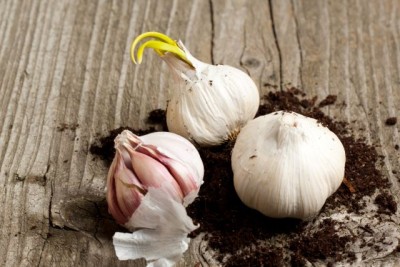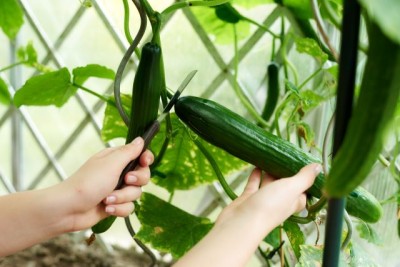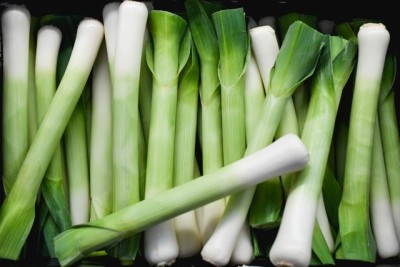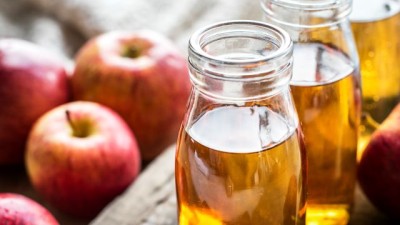10 Beneficial Vinegar Uses In The Garden
Warning: Undefined variable $post in /home/dietofli/public_html/wp-content/plugins/code-snippets/php/snippet-ops.php(584) : eval()'d code on line 3
Warning: Attempt to read property "ID" on null in /home/dietofli/public_html/wp-content/plugins/code-snippets/php/snippet-ops.php(584) : eval()'d code on line 3
The estimated reading time is 7 minutes
Warning: Undefined variable $post in /home/dietofli/public_html/wp-content/plugins/oxygen/component-framework/components/classes/code-block.class.php(115) : eval()'d code on line 3
Warning: Attempt to read property "ID" on null in /home/dietofli/public_html/wp-content/plugins/oxygen/component-framework/components/classes/code-block.class.php(115) : eval()'d code on line 3
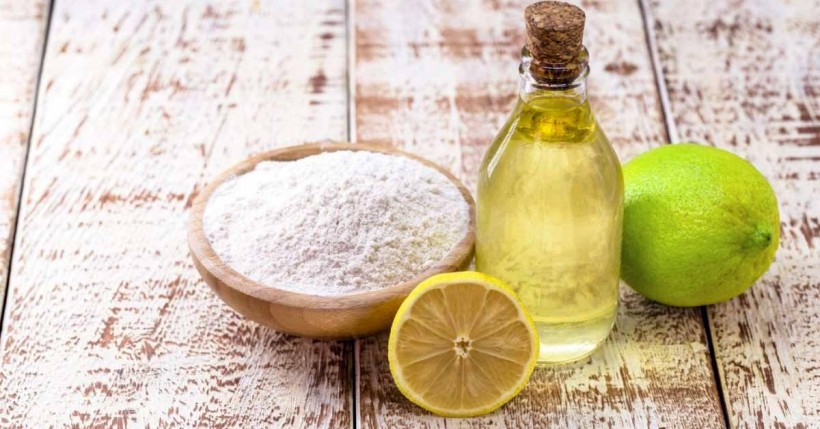
Vinegar is a unique household cleaner and highly praised cooking ingredient. It is a unique combination of acetic acid and water that is produced after a two-step fermentation process. It means sour wine in French. "Vin aigre", is the French name from which the name is derived.
The acidic chemical elements make it so useful and can even make wonders in your garden. You have probably heard that it can be used as a herbicide, but let's find out some other uses of white vinegar in the garden. (1)
Vinegar Benefits In The Garden
-
It is a great organic weed killer
You can kill weeds by spraying vinegar directly onto them. It is a cheap and natural agent to get rid of weeds, so it is much safer. It has been debated if it is as effective as commercial herbicides.
Vinegar, especially household vinegar, can be rather helpful in killing the sprouts and young plants than the sturdy and mature weeds as it contains only 5 % of acetic acid. However, commercial herbicides contain around 20 % acetic acid and are much more powerful.
When used, you should always watch your eyes, skin, and other plants and children and pets, if you have one.
So, it is better to stay off the commercial ones and use this natural agent, although few applications might be necessary. But if you have a good weed strategy, the household vinegar will show to be also effective.
How does it work?
Vinegar dissolves the cell membranes, and the tissue is desiccated, resulting in the plant's death.
Recipe For Killing Weeds
- One gallon of white vinegar
- One cup of salt
- 2 tbsp. dish soap
Instructions:
- Mix all the ingredients and wait until the soap bubble deflate
- Apply to the plants, grasses, and weeds with a garden sprayer
- Wet all the areas on the leaves and all areas of the plant just to the ground.
- It is advisable to apply the solution on a calm and sunny day and let the sun solute it
- Make sure you haven't sprayed the plants you keep
- This spray can be used on places where there are no other plants that can be potentially harmed, such as walkways or garden paths
-
It can boost the seeds' germination
If you have seeds for planting, you can soak them in a solution of:
- 500ml water
- 125ml of vinegar
Mix this solution and cover the seeds and soak them overnight. Rinse them and plant, but be careful not to soak them for more than 24 hours.
- This method is very helpful for hard-coated seeds or for seeds that have difficult germination.
-
It can keep your favorite garden tools clean
Instead of washing your tools after each use, just wash them with vinegar once or twice per month and brush them thoroughly with the solution before you store them.
Instructions:
- Soak them entirely in clean vinegar
- Soak for at least 15 minutes to remove the dirt and wipe them off
- If you want the rust to come off, let the tools rest overnight soaked or sprayed with vinegar, and then rinse them. Wipe them with a clean cloth and let them dry.
- You can even scrub them with steel wool if the rust is stubborn
-
It can help your plants to bloom
Some plants need an acidic environment. Flowers like rhododendrons, hibiscus, blueberries, gardenias, and hydrangeas are such plants. If you have problems with these plants, vinegar will be helpful for their blooming.
Recipe for acid soil
You need to make a mixture of:
- 1 cup of white vinegar
- 1 gallon of water
Instructions:
- Add to the soil or around the plant's base to feed its roots
- It will make the soil more acidic, but this is helpful only in the short term, so if you want your plants to have a real advantage of it, you should apply it more frequently
- You can always test soil acidity by using and making a soil test at home or taking the soil to the lab
-
It can be used as a fungicide
It can be used to fight fungi ( downy mildew and spot diseases ) that attack many garden vegetables and plants. (2)
How to prepare the anti–fungi recipe?
- Pour 3 cups of boiling water on around 4 – 5 chamomile tea bags and steep them for around 24 hours
- Strain it and put 2 tsp. of vinegar into the tea and stir it
- Apply it to the affected areas
- When dried, you can reapply it after a few days if needed
-
It will help you to clean the terracotta pots, birdbaths, and outdoor furniture
Terracotta pots get quickly dirty and are sometimes difficult to clean. However, they look lovely and classy and are an excellent accessory for your garden. If you try to wash them in vinegar, you will easily remove the build-up dirt and restore the original color.
You can also use a solution of vinegar with water to scrub the birdbaths, but make a small test on some hidden areas before using it on the whole surface. You can use the solution to rub the rust off the metal garden furniture as well and enjoy the clean benches and tables on Sunday sun.
-
It will deter animals from your garden
If you are a passionate gardener, you always get frustrated when you see your neighbor's pets digging in your soil or unwanted animals like snakes getting into your garden. You can spray it on the perimeters or soak some rags and put them in some low places around your garden. This will naturally deter all unwanted guests to your garden without causing any harm.
Vinegar Used As A Pesticide
-
It can act as a repel agent, especially for ants
Vinegar can be used as an insecticide in your garden. (3)
Insects can cause a lot of damage in your garden and this natural agent is of great help here too. Just spray the edges of your garden and repel the insects. You can pour or sprinkle vinegar on the soil too, but never on the plants, you keep.
Recipe for repelling ants
Make a mixture of:
- Three cups of water
- One cup of vinegar
- 1 tablespoon of dish soap
Instructions:
- Spray it directly on ants and insects to kill them
- You should be careful with beneficial insects (like bees) as you may harm them as well
-
It can kill snails and slugs
They can cause a lot of damage to your garden too. Mix equal proportions of water and vinegar and put it in a vinegar bottle. Spray directly on them, but avoid the grass and all the vegetation as it might harm it.
-
It can kill fruit flies
Fruit flies can sometimes be a garden problem. Some spices can even pierce the skin of fresh vegetables or fruits or leave larvae inside. So, you can make an easy vinegar trap to keep them in control and solve the problem with the fruit flies in your garden.
Trap Recipe For Catching Fruit Flies
- One cup of warm water
- Half a cup of vinegar
- 4 tbsp. of sugar
- 1 tbsp. molasses
Instructions:
Mix all the ingredients and let the sugar and molasse dissolve. Then, pour the mixture into small containers and hang them on your fruit trees to catch the pesky flies inside.
Vinegar May Be Harmful To Plants
Vinegar may be great for killing weeds and fertilization of the soil, but it is an acid that can damage the plants you keep. Vinegar cannot make a selection between weeds and plants and can easily eradicate them. It can burn them since it contains acidic acid that destroys the cell membranes of the plants.
The only way to use the vinegar for plants is to spray its solution (vinegar water for plants) around some plants that enjoy acid environments like rhododendrons, hibiscus, blueberries, gardenia, and hydrangeas.
Spraying Plants With Vinegar
It is not safe to spray vinegar on plants. It will dry their leaves and if you put it directly on the soil it will kill the plant, so you should be careful when using it in the garden.
Vinegar Makes Cut Flowers Live Longer
If you have just bought fresh cut flowers you can add 2 tbsp. of apple vinegar mixed with 2 tbsp. of sugar in the vase water before adding the flowers. This will prolong their life. The acidic water is hostile to all the microbes and protects the flowers.

